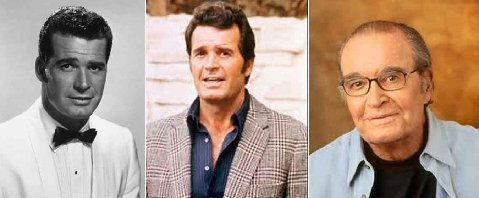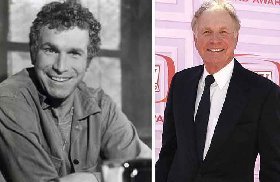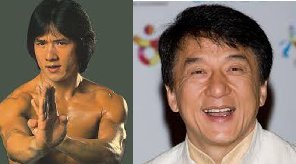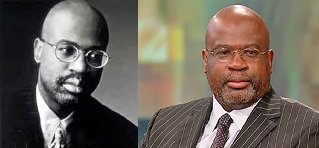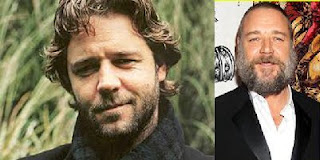Francis Albert Sinatra ; (December 12, 1915 – May 14, 1998) was an American singer and actor. Nicknamed the "Chairman of the Board" and later called "Ol' Blue Eyes", Sinatra was one of the most popular entertainers of the 1940s, 1950s, and 1960s. He is among the world's best-selling music artists with an estimated 150 million record sales.
Born to Italian immigrants in Hoboken, New Jersey, Sinatra was greatly influenced by the intimate, easy-listening vocal style of Bing Crosby and began his musical career in the swing era with bandleaders Harry James and Tommy Dorsey. He found success as a solo artist after signing with Columbia Records in 1943, becoming the idol of the "bobby soxers". Sinatra released his debut album, The Voice of Frank Sinatra, in 1946. When his film career stalled in the early 1950s, Sinatra turned to Las Vegas, where he became one of its best-known residency performers and part of the famous Rat Pack. His acting career was revived by the 1953 film From Here to Eternity, which earned Sinatra an Academy Award and a Golden Globe Award for Best Supporting Actor. Sinatra then signed with Capitol Records and released several critically lauded albums, some of which were later considered as among the first "concept albums", including In the Wee Small Hours (1955), Songs for Swingin' Lovers! (1956), Come Fly with Me (1958), Only the Lonely (1958), No One Cares (1959), and Nice 'n' Easy (1960).
Sinatra left Capitol in 1960 to start his own record label, Reprise Records, and released a string of successful albums. In 1965, he recorded the retrospective album September of My Years and starred in the Emmy-winning television special Frank Sinatra: A Man and His Music. After releasing Sinatra at the Sands, recorded at the Sands Hotel and Casino in Vegas with frequent collaborator Count Basie in early 1966, the following year he recorded one of his most famous collaborations with Tom Jobim, the album Francis Albert Sinatra & Antonio Carlos Jobim. It was followed by 1968's Francis A. & Edward K. with Duke Ellington. Sinatra retired for the first time in 1971, but came out of retirement two years later. He recorded several albums and resumed performing at Caesars Palace, and released "New York, New York" in 1980. Using his Las Vegas shows as a home base, he toured within the United States and internationally until shortly before his death in 1998.
Sinatra forged a highly successful career as a film actor. After winning an Academy Award for best supporting actor in From Here to Eternity, he starred in The Man with the Golden Arm (1955) and The Manchurian Candidate (1962). Sinatra also appeared in musicals such as On the Town (1949), Guys and Dolls (1955), High Society (1956), and Pal Joey (1957), which won him another Golden Globe. Toward the end of his career, he frequently played detectives, including the title character in Tony Rome (1967). Sinatra received the Golden Globe Cecil B. DeMille Award in 1971. On television, The Frank Sinatra Show began on CBS in 1950, and he continued to make appearances on television throughout the 1950s and 1960s.
^the Hoboken Four with Sinatra on the far right...
While Sinatra never learned how to read music, he worked very hard from a young age to improve his abilities in all aspects of music. A perfectionist, renowned for his style and presence, Sinatra always insisted on recording live with his band. He led a colorful personal life and was involved in turbulent relationships, including his second marriage to Ava Gardner. He later married Mia Farrow in 1966 and Barbara Marx in 1976. Sinatra had several violent confrontations, often with journalists he felt had crossed him or work bosses with whom he had disagreements. He was deeply involved with politics starting in the mid-1940s and actively campaigned for presidents Franklin D. Roosevelt, Harry S. Truman, John F. Kennedy and Ronald Reagan. Sinatra was investigated by the FBI for his alleged relationship with the Mafia
.
Sinatra was honored at the Kennedy Center Honors in 1983, was awarded the Presidential Medal of Freedom by Ronald Reagan in 1985, and the Congressional Gold Medal in 1997. He received eleven Grammy Awards, including the Grammy Trustees Award, Grammy Legend Award and the Grammy Lifetime Achievement Award. Sinatra was included in Time magazine's compilation of the 20th century's 100 most influential people. American music critic Robert Christgau called him "the greatest singer of the 20th century" and he continues to be regarded as an iconic figure.
Francis Albert Sinatra was born on December 12, 1915, in an upstairs tenement at 415 Monroe Street in Hoboken, New Jersey, the only child of Italian immigrants Natalina "Dolly" Garaventa and Antonino Martino "Marty" Sinatra, who boxed under the name Marty O'Brien. Sinatra weighed 13.5 pounds at birth and had to be delivered with the aid of forceps, which caused severe scarring to his left cheek, neck, and ear, and perforated his eardrum—remaining damaged for the rest of his life. When he was in an unconscious state, his grandmother resuscitated him by running her grandson under cold water until he gasped his first breath. Due to his injuries at birth, his baptism at St. Francis Church in Hoboken was delayed until April 2, 1916. A childhood operation on his mastoid bone left major scarring on his neck, and during adolescence he suffered from cystic acne that further scarred his face and neck. Sinatra was raised in the Catholic Church.
Sinatra began singing professionally as a teenager, but even though he never learned to read music, he learned music by ear.
If you want to read more, go here: https://en.wikipedia.org/wiki/Frank_Sinatra
- 1/4 cup creamy peanut butter
- 8 slices home-style white bread
- 2 large bananas, peeled
- 8 slices of warm, cooked bacon
- 2 tablespoons butter
- Spread equal amounts of peanut butter over 4 slices of bread.
- Cut bananas in half crosswise then slice each piece lengthwise into 3 pieces. Place 3 slices of banana over peanut butter, then top each with two slices of bacon. Top with remaining slices of bread.
- In a large skillet or griddle, melt 1 tablespoon butter over medium-low heat and place two sandwiches in skillet. Cook 2 minutes then turn sandwiches over and cook 1 to 2 additional minutes, or until golden.
- Repeat with remaining butter and sandwiches. Serve immediately.
1954 – Jackie Chan, Chinese actor, director, producer, and martial artist
1956 – Christopher Darden, American lawyer, writer, and lecturer, prosecutor in O. J. Simpson murder case
1964 – Russell Crowe, New Zealand-Australian actor
Take a break from the sweeping, dusting, and dishes. Dirty windows? They will wait one more day. The vacuum will remain banished to the closet. And mopping? Well, tomorrow it’s a date.
While we don’t have to overlook the obvious necessary sanitary needs, we can leave a few dishes in the sink for the day. If the toys are scattered, leave them. Books cluttering the table? They can stay, too. Those chores you dread the most? Postponed for 24 hours. All general spring cleaning is delayed, too. Have closets been calling your name and begging, “Clean me!”? Ignore the voices. Do your cupboards need organizing? Hit the pause button on those, too.
All regularly scheduled housework resumes on April 8th.
HOW TO OBSERVE
- Leave the housework.
- Pick up a good book for the day.
- Play board games with the kids.
- Watch a good movie or two.
- Binge-watch a television series you’ve been saving to see.
- Play your favorite musical instrument.
NATIONAL NO HOUSEWORK DAY HISTORY
Thomas and Ruth Roy at Wellcat.com created National No Housework Day.





.jpg)


